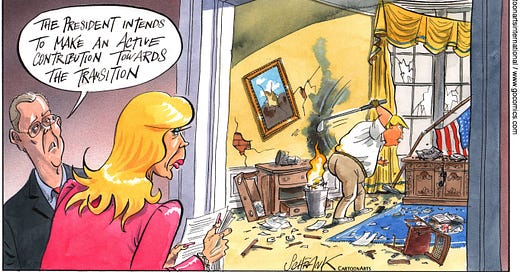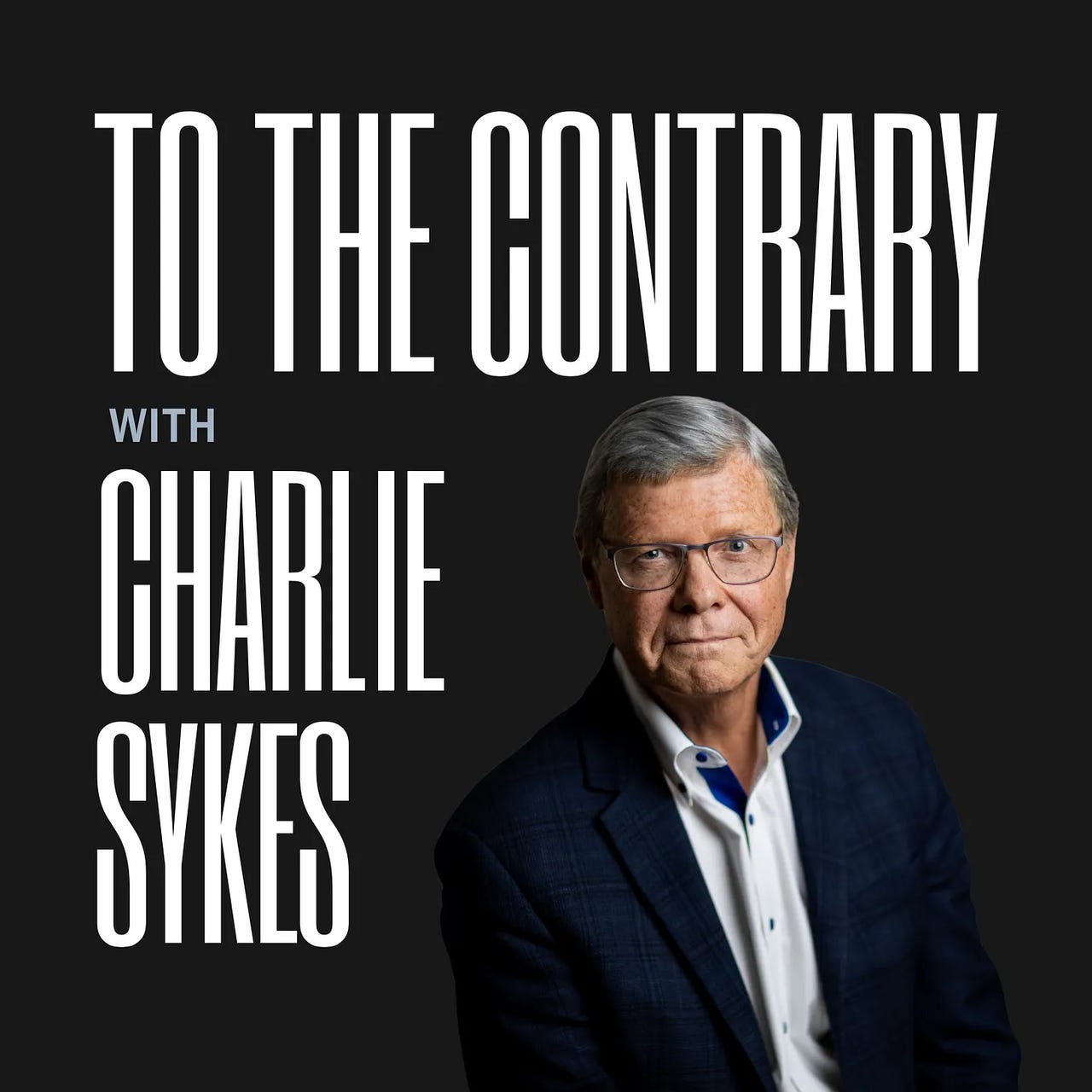“In the scientific world, the Not-Invented-Here bias is fondly called the ’toothbrush theory.’ The idea is that everyone wants a toothbrush, everyone needs one, everyone has one, but no one wants to use anyone else’s.” ~ Dan Ariely
At one stage in my career, I was asked to bring together and manage distinct, international communities of employees — they were based all over the world, from Madrid to Melbourne to Minneapolis to Manila. My goal was to create a “global team” and use all the experience and resources I had at my disposal. For example, I had a fabulous Spanish manager running the incredibly talented Madrid operation. While his English wasn’t the greatest, his leadership skills were terrific and I learned to trust him implicitly. The same was true for the Filipino manager and operation in Manila. Everyone was living with their families in their own home and country, rather than in corporate housing in Chicago.
Decades before zoom came on the scene, my managers and I were meeting virtually through video-conferencing. I would make a point of being the one, who checked in on them to see their teams and we would all meet in Chicago quarterly. It actually was a cost-effective… albeit more complicated … way of managing and getting the best talent. It was truly one of the most satisfying experiences of my career. I was finally in a position, where I could apply all the best experiences I had had with effective leaders. I promoted and rewarded teamwork, collaboration, win-win relationships.
And as great as it was, I was ready to begin a new chapter. I had worked as “road warrior” for more than 20 years and I wanted a different life. My parents were getting older, so I wanted to be able to spend more time with them. I wanted to work relatively normal hours and sleep in my own bed at night. I wanted a dog. I wanted to have fun. Call it a mid-life crisis, but it was time for a personal change.
Much to people’s shock, I chose to leave the Firm and begin something new. It took them a few months to find my replacement. While he was a very capable guy, there is one thing I learned a long the way: everyone wants it their own way. So with no further ado, or any attempt to understand our global team, he unwound everything we had created and moved all the key people to the United States. He saw no point in a global organization or having a global management team (even though, we were a global firm with diverse talent). A number of my managers called me to complain … but there was nothing I could do. It was his team now — not mine.
Unwinding is such a counter productive and wasteful way to lead. There are so many folks who believe in the ethos, “not-invented-here.” In other words, I don’t need to learn about what you’re doing, because I didn’t create it.
With all the chaos and disruption since January 20th, it seems pretty clear that Trump’s #1 unstated mission is to unwind all the things that were done in the Biden administration including the bipartisan legislation that was enacted.
Obviously, I’m not surprised. It’s on brand with his, “only I can fix it” ego. But you would have thought he might have learned something from his disastrous incompetence managing the Covid pandemic.
In 2005, President George W. Bush unveiled a plan to get America ready for a possible pandemic. Obama used the resources of that organization and created new protocols to manage to the Ebola, SARS, swine flu and Zika outbreaks during his administration.
Public health and national security experts shook their heads when President Donald Trump says the coronavirus “came out of nowhere” and “blindsided the world.” They had been warning about the next pandemic for years and criticized the Trump administration’s decision in 2018 to dismantle a National Security Council directorate at the White House charged with preparing for when, not if, another pandemic would hit the nation. Whoops.
In his first week in office with his second term, Trump has issued a series of executive orders (EO) targeting diversity, equity, and inclusion programs in the public and private sectors. Websites were changed and history was removed from agencies across the government.
Among other things, the EOs direct the Trump administration agencies and staff to:
Terminate diversity, equity, and inclusion offices, positions, and programs in the federal government.
Terminate equity-related grants and contracts.
Repeal prior executive orders designed to ensure equal opportunity in the workplace, including a decades-old executive order from the Johnson Administration that required contractors receiving federal funds to take active steps to prevent discrimination and address barriers to employment opportunities.
Direct federal agencies to contractually obligate federal contractors and grantees to certify that they “do not operate any programs promoting DEI that violate any applicable Federal anti-discrimination laws,” while making clear that President Trump considers DEI to be illegal and immoral.
Challenge the programs of publicly traded corporations, large nonprofits, philanthropic foundations, professional associations, and institutions of higher education that are designed to advance equity, including by threatening legal action, with the obvious goal of chilling their programs.
Issue guidance that may seek to limit what state and local educational agencies and institutions of higher education can do to ensure equal access to education.
Clearly, anything that promotes equal opportunity with this administration is considered a non-starter.
Probably nothing is dumber than his plans to unwind the infrastructure bill. In short order, President Trump has thrown the U.S. clean energy industry into chaos, with much of the economic damage hitting Republican states and districts. The stupidity is beyond the pale. IRA funding freeze has put ‘many’ clean energy projects on pause.
In a quest to eliminate any funding linked to climate change, the Trump administration has frozen federal grants for everything from battery factories to electric school buses and issued executive orders that have halted federal approvals for wind and solar projects. We’ve already talked about their plans to dismantle NOAA, since they are so-called, “climate alarmists.”
Scoop: Multiple firings on Trump's National Security Council after Loomer visit
Gen. Timothy Haugh has been fired as National Security Agency director and removed from the NSA role and as U.S. Cyber Command chief, along with his civilian deputy Wendy Noble. Why? Because conspiracy theorist Laura Loomer visited the Oval Office and pressed Trump to oust specific NSC staffers because they were insufficiently loyal to Trump. Watching this administration unwind our security apparatus is mind-blowing and actually a bit terrifying.
And we have seen how Elon Musk and his DOGE team are operating. Firing and rehiring essential workers (like the folks that safeguard our nuclear weapons). Whoops. Shuttering Social Security offices and then reopening them. Whoops. et al…
RFK Jr. Says Whoops! We Fired the Wrong People at HHS
They’re actually having to unwind their own unwinding. Dumb.
“This is not a so-called restructuring. These are reckless, thoughtless cuts that will only make American communities less healthy and less safe. They represent an abdication of the department’s essential responsibility to promote and protect health.” ~Dr. Richard Besser
Wouldn’t it be great, if everyone who took on a new role was curious?
Listening, learning, curiosity … maybe something can be gleaned by taking the time to understand.
Thought for the day in honor of her birthday…
“The search for human freedom can never be complete without freedom for women.” ~Betty Ford
Must Read Article:
Trump Just Reached a Historic Milestone
The executive order is Trump’s preferred governing tool. Even with Republican congressional majorities, he favors the flourish of the order over the hassle of lawmaking. Why bother assembling legislative coalitions when you can just write, “By the authority vested in me as president by the Constitution and the laws of the United States of America, it is hereby ordered” and then tack on whatever you like?
There’s a tension inherent in executive orders as an exercise of presidential power. For all their “because I say so” affectations, orders do not carry the same legitimacy or endurance of laws passed by Congress and can be revoked by future presidents. (Some of Trump’s second-term executive orders simply undo some of President Joe Biden’s orders, which in turn rescinded orders from the first Trump term.) Still, these documents can prove enormously consequential, and some represent indelible moments, for good or ill, in American history. The Emancipation Proclamation, the internment of Japanese Americans during World War II and the postwar desegregation of the U.S. military all came about via executive order.
In keeping with this administration’s management style, Trump’s first 107 orders, spanning some 300 pages, can be a bit of a mess…Yet despite the muddle — or perhaps because of it — the new administration’s orders fulfill one essential service: They affirm and expand Trump’s vision of the presidency, of politics, of our Nation. The orders capture the world as Trump sees it and wishes it to be, and they show how the borders between high principle and low politics, between words and reality, are porous.
America was great until Biden ruined it. The economy is shackled by misguided regulations and must be set free. Trump’s opponents are ideological, while he relies on common sense. American values are always in danger and must be shielded from enemies, often enemies from within. The president is not just the head of the executive branch but also the sole interpreter of law and the lone representative of the people.
Quote of the day:
“We’re streamlining the agencies. We’re going to make it work for public health, make it work for the American people. In the course of that, there were a number of instances where studies that should have not have been cut were cut, and we’ve reinstated them. Personnel that should not have been cut were cut–we’re reinstating them, and that was always the plan.”
~Robert Kennedy, Jr.
What I’m reading today…
Judge Calls Mistaken Deportation of Maryland Man a ‘Grievous Error’
The strongly worded order by the judge, Paula Xinis, served two purposes: It offered a more detailed explanation of a brief ruling she issued on Friday, demanding that the White House bring the migrant, Kilmar Armando Abrego Garcia, back to the United States by the end of Monday. And it rejected a request by the Justice Department to pause the order as a federal appeals court considered its validity.
“As defendants acknowledge, they had no legal authority to arrest him, no justification to detain him, and no grounds to send him to El Salvador — let alone deliver him into one of the most dangerous prisons in the Western Hemisphere,” Judge Xinis wrote. “Having confessed grievous error, the defendants now argue that this court lacks the power to hear this case, and they lack the power to order Abrego Garcia’s return.”
'There will be slowdowns': How RFK's health department cuts will affect you
The job cuts might hamper the FDA's ability to tackle cutting-edge issues such as the use of artificial intelligence or making the nation's food supply safer and more nutritious, said Peter Pitts, a former FDA associate commissioner.
"The announcement sounds more like a ready, fire, aim proposition," said Pitts, co-founder of the Center for Medicine in the Public Interest, a nonprofit research and educational organization.
Kennedy has said he wants to focus on the nation's food supply to use nutrition as a way to improve human health, but such an ambitious goal "doesn't require fewer people, it requires more people," Pitts said.
Global brokerages raise recession odds; J.P. Morgan sees 60% chance
JPM raises recession odds from its previous estimate of 40%
S&P Global, Goldman also hike US recession probability
Barclays, BofA, Deutsche Bank warn of higher recession risks
RBC, UBS cut S&P 500's year-end targets
Brokerages expect more Fed rate cuts if tariffs remain
Trump blows up America's China policy
A bipartisan consensus on how to compete with China that took shape in President Trump's first term has exploded at the start of his second. Nearly everyone in Washington agrees that to win the battle for the 21st century, the U.S. needs to strengthen its alliances in Asia, shift supply chains to friendlier countries, and convince the world Washington is a more dependable partner than Beijing. Nearly everyone, that is, except Donald J. Trump….He's trying to unravel the CHIPS Act — which subsidized domestic production of key tech like semiconductors that are at the heart of U.S.-China competition — and has broken with his own party on everything from banning TikTok to standing with Taiwan.
Trump slashed health funding—right as a deadly mosquito-borne disease is spreading in the U.S.
In the past, the CDC has readily acknowledged the role climate change plays in the transmission of dengue fever—but the political conditions that influence scientific research and federal public health communications in the U.S. have undergone seismic shifts in the months since President Donald Trump took office. The new administration has purged federal agency websites of mentions of equity and climate change and sought to dismantle the scientific infrastructure that agencies like the CDC use to understand and respond to a range of health risks—including those posed by global warming.
Federal Cuts Dominate March 2025 Total: 275,240 Announced Job Cuts, 216,670 from DOGE Actions
U.S.-based employers announced 275,240 job cuts in March, a 60% increase from the 172,017 cuts announced one month prior. It is up 205% from the 90,309 cuts announced in the same month in 2024, which was the highest monthly total recorded last year. Over the last two months, DOGE actions have been attributed to 280,253 layoff plans of federal workers and contractors impacting 27 agencies, according to Challenger tracking. Another 4,429 job cuts have come from the downstream effect of cutting federal aid or ending contracts, impacting mostly Non-Profits and Health organizations. March’s total is the third-highest monthly total ever recorded. The highest monthly total occurred in April 2020 when 671,129 cuts were recorded, followed by May 2020 with 397,016.
The East experienced a 277% year-over-year increase from 94,406 to 355,992. The District of Columbia saw the largest increase from 34,120 in the first quarter of 2024 to 278,711 in 2025.
The Midwest region saw significant job cut activity, with a 25% increase from 37,639 in Q1 2024 to 47,063 in 2025. The largest increases occurred in Ohio and Nebraska, while Missouri, Wisconsin, and Indiana saw significant drops.
Meanwhile, the West region experienced an overall 19% decline, dropping from 92,178 in 2024 to 74,521 in 2025. Texas, Arizona, and Oklahoma have seen increased job cutting this year.
Repealing Inflation Reduction Act Could Cost Jobs, Raise Energy Bills
A new economic analysis shows that repealing the Inflation Reduction Act (IRA) could cost state economies billions of dollars, cause them to miss out on thousands of jobs, and raise energy costs for consumers.
The IRA, originally passed in 2022, represents the largest investment in clean energy and climate action in American history. The law invests hundreds of billions of dollars in clean energy projects like solar, wind, and battery storage, often in the form of tax credits for consumers, or as grants and loans for the private sector.
The Three States That Are Especially Stuck if Congress Cuts Medicaid
If congressional Republicans go through with some of the deep Medicaid cuts they are considering, three states would be left in an especially tight bind.
South Dakota, Missouri and Oklahoma have state constitutions requiring that they participate in Medicaid expansion, the part of Obamacare that expanded the health program for the poor to millions of adults.
If Republicans choose to make the projected budget reductions by cutting into Medicaid expansion, the other 37 states (and D.C.) that participate in the expansion could stop covering working-class adults. Nine states have laws explicitly requiring them to stop Medicaid expansion or make significant changes if the federal share of spending drops.
RFK Jr. rolls back transparency policy on Medicaid and NIH changes
Health and Human Services Secretary Robert F. Kennedy Jr. ended a longstanding transparency rule on Friday, supercharging his authority to change policies in areas ranging from Medicaid to the National Institutes of Health without advance notice to the public.
Dubbed the "Richardson Waiver" after the former health secretary who issued the rule in 1971, the policy Kennedy repealed had required regulations related to property, loans, grants, benefits or contracts to go through the federal "rulemaking" process.
US infrastructure improved with Biden-era spending but there’s a long way to go
A once-every-four-years report card on the upkeep of America’s infrastructure gave it a “C” grade on Tuesday, up slightly from previous reports, largely due to investments made during former President Joe Biden’s administration. The report from the American Society of Civil Engineers, which examined everything from roads and dams to drinking water and railroads, warns that federal funding must be sustained or increased to avoid further deterioration and escalating costs.
“We have seen the investments start to pay off, but we still have a lot of work to do out there,” said Darren Olson, chair of this year’s report. He said decrepit infrastructure – from poor roads that damage cars to delayed flights to power outages that spoil groceries — hurts people and the economy.
790,000 Jobs, $160 Billion GDP: Shocking Costs Of Inflation Reduction Act Repeal
Trump administration proposals to repeal IRA federal policies to pay for tax cuts to benefit the wealthiest Americans – now being considered by Congress, which passed the IRA in 2022 – could halt this economic engine. That’s ironic considering 77% of the IRA’s clean energy and deployment investment have gone to Congressional districts represented by Republicans, and likely the reason 21 GOP Members of the House of Representatives oppose repealing them.
Donald Trump's Golf Win Announcement Sparks Backlash Amid Tariff Fallout
"The President won his second round matchup of the Senior Club Championship today in Jupiter, FL, and advances to the Championship Round tomorrow," the White House said in its statement.
The announcement, which sparked backlash from the president's critics on social media, came as Trump spent time at his Florida properties, golfing and attending events, including the Saudi-funded LIV Golf Miami tournament and a planned fundraising dinner at Mar-a-Lago on Friday.
Where Trump’s Tariffs Will Hit Hardest
Many of the worst-hit countries are close American allies and partners. In Southeast Asia, countries like Vietnam, Thailand and Cambodia have for years worked to turn themselves into alternatives to China for factories making the bags, electronics, shoes and auto parts that eventually end up in the United States. Now, they will face some of the most punishing tariffs.
A second group of trading partners facing high tariffs includes huge exporters like China, Japan, India and the European Union. Their overall economies are less exposed to changes in American exports, but many of them still face large economic risks.
Opinion: Who will care for our public lands? The unseen cost of shrinking government
The impact is immediate. With fewer rangers, vandalism and illegal activity increase. With fewer trail crews, pathways become impassable. With fewer scientists monitoring ecosystems, critical data on climate change, invasive species, and habitat health disappears. This is not about efficiency — it’s about whether we, as a nation, will abandon our responsibility to care for the lands we collectively own.
Trump may undo Biden’s national monuments
The U.S. is likely to see changes to public lands again under the second Trump administration. One of the new administration’s early orders was for the Department of Interior to review all national monuments for potential oil and gas drilling and mining.
Trump’s Science Policies Pose Long-Term Risk, Economists Warn
President Trump’s tariffs could drive up prices. His efforts to reduce the federal work force could increase unemployment. But ask economists which of the administration’s policies they are most concerned about and many point to cuts to federal support for scientific research.
The Trump administration in recent weeks has canceled or frozen billions of dollars in federal grants made to researchers through the National Institutes of Health, and has moved to sharply curtail funding for academic medical centers and other institutions. It has also, through the initiative called the Department of Government Efficiency, tried to fire hundreds of workers at the National Science Foundation, an independent federal agency. And it has revoked the visas of hundreds of foreign-born students.
Repealing the Inflation Reduction Act could wipe $160 billion off US GDP
With the exception of California, Republican-controlled states — Texas, Georgia, Florida, and Pennsylvania — stand out as the biggest losers, according to projections by think tank Energy Innovation: Annual household energy bills in Texas, for example, could increase $370 per year on average in 2035 as reduced investment in renewables drives up the share of electricity coming from fossil fuels and utilities pass on their higher costs to consumers, according to Energy Innovation projections.
A catastrophe is unfolding at the top US health agency — and it will put American lives at risk
Kennedy is blocking the release of pro-vaccine data amid a widening measles outbreak even as he puts into motion long-term projects that seem set to further erode Americans’ wobbly trust in childhood vaccination. Coupled with the massive staff cuts at HHS, a weakened federal health department is being remade in Kennedy’s anti-vax, anti-science image — an overhaul that could have dangerous consequences for Americans’ health for years to come.
IL Sues RFK Jr, HHS Over Health Funding Cuts
…the Trump Administration announced it was cutting nearly $12 billion in funding to states for health crises and eliminating 10,000 Department of Human Services jobs… a coalition of 24 attorneys general and governors, filed a lawsuit against the U.S. Department of Health and Human Services and HHS Secretary Robert F. Kennedy Jr., "for abruptly and illegally terminating" the critical public health grants to states.
The federal grants to Illinois and others were used to fund such things as infectious disease tracking, immunization clinics, mental health services, addiction treatment and other emerging health needs.







